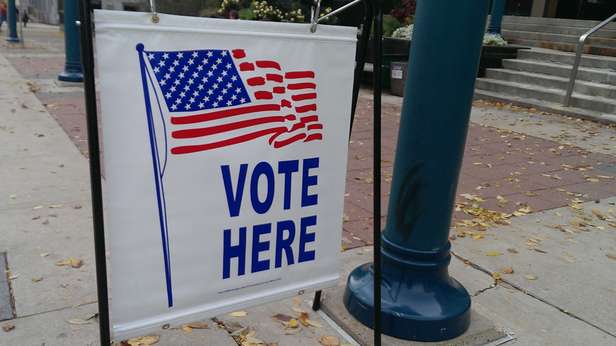
Legislators aim to limit tax-and-spend questions to higher turnout elections, slow their frequency
MacIver News Service | January 13, 2016
[Madison, Wisc…] Legislation that would limit two tactics critics believe school districts use to increase the chances their spending proposals will pass will be considered in a Senate hearing on Thursday.The legislation would restrict when and how often districts can hold referendums. Some legislators are concerned districts hold referendums on low turnout elections or place them on the ballot during consecutive elections until they finally pass.
The legislation’s author, Senator Duey Stroebel (R-Saukville), considers these to be dirty tricks intended to bypass the will of a majority of voters, particularly if a referendum initially fails.
Stroebel’s referendum reform bill, Senate Bill 355 (SB 355) would curtail these practices. If passed, school districts could only hold referendums during general elections (either spring or fall), and if a referendum fails, the school district would have to wait one year before trying again.
The initial legislation required a two year waiting period, but Stroebel amended that provision to one year in December.

The MacIver Institute examined the success rates of both tactics for 211 referendums put to voters from November 2013 through October 2015. We reported in November that the referendums most likely to succeed were held during low-turnout primary elections, in which 79 percent passed.
By contrast, just 66 percent of referendums on the ballot during general elections passed, when voter turnout is highest.
Our research found the school district of Delavan-Darien tried for $3.75 million in the fall general election in November 2014. That attempt failed, so they tried again during the February primary three months later, that time asking for $2.5 million. It passed. Election turnout was 5,659 the first time, but only 1,923 voters cast a ballot the second time.
Referendums, ballot measures that typically raise taxes and spending, should be held on high-turnout elections when a larger number of taxpayers follow the issues and go to the polls, Stroebel contends. He also believes districts should be restricted from returning to voters with multiple consecutive referendums until one passes.
We found that when a referendum fails, districts that immediately put them back on the ballot for a do-over see a higher rate of passage. Our examination in November found several examples of districts using the tactic with success.
That includes the Durand School District, which stuck to general elections, but did so in rapid succession. In the fall 2014 general it asked for $17.5 million from taxpayers. When that failed, it lowered the request to $13.48 million and went back to voters during the very next general election in the spring of 2015 – and won. Turnout in the fall was 2,920. In the spring it was 2,056.
We subsequently reported the passage of 5 of 7 referendums held on special election dates, a success rate of 71.4 percent.
“By ensuring the referenda questions occur on general elections, more of the voting population will be tuned into the process. With higher voter participation and a cool down period, schools must have a transparent discussion on the need to raise taxes,” Stroebel told the MacIver Institute in a previous story.
The Senate Committee on Elections and Local Government has scheduled the bill for public hearing on Thursday morning.
Senators Frank Lasee (R-De Pere) and Chris Kapenga (R-Delafield) joined Stroebel in co-sponsoring the legislation. Representative Michael Schraa (R-Oshkosh) is co-sponsoring the bill in the Assembly.